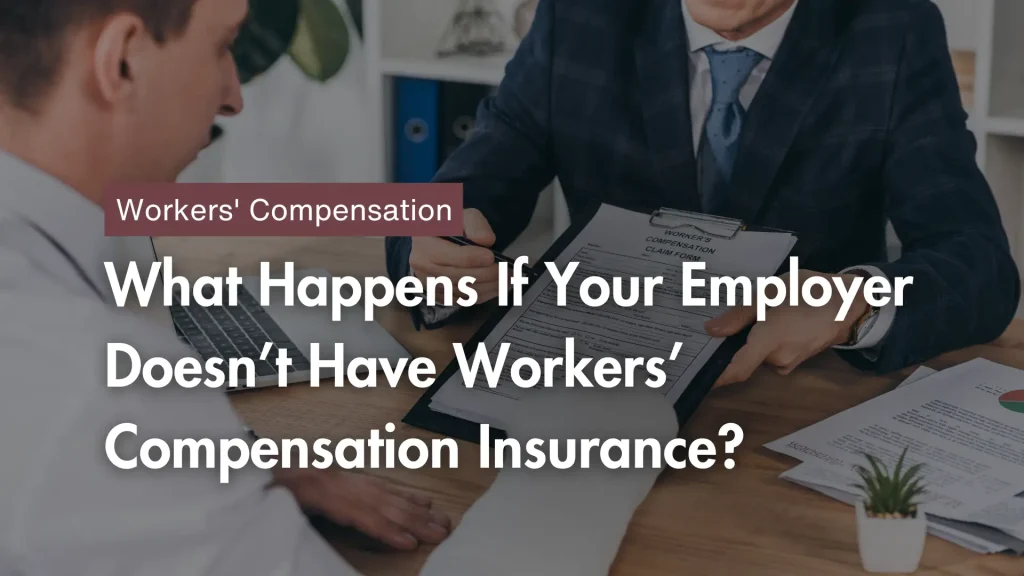 In Minnesota, all employers should carry workers’ compensation insurance to pay for the medical bills and lost income of employees who sustain injuries on the job. Workers’ compensation insurance protects workers and their finances if they are injured performing job duties and can no longer work. However, what happens if your employer does not carry workers’ compensation insurance?
In Minnesota, all employers should carry workers’ compensation insurance to pay for the medical bills and lost income of employees who sustain injuries on the job. Workers’ compensation insurance protects workers and their finances if they are injured performing job duties and can no longer work. However, what happens if your employer does not carry workers’ compensation insurance?
The good news is that there are still options for recovering compensation if your employer doesn’t have workers’ compensation insurance, although the process can be more complicated. Employers may also face heavy fines and penalties for not carrying workers’ compensation insurance.
Is Workers’ Compensation Insurance Mandatory for Employees?
Yes. Minnesota Statutes 176.181 Subd. 2 states all businesses must provide workers’ compensation insurance, no matter how many employees they have. If a business has even one part-time employee, it must provide workers’ compensation insurance. A business can either obtain coverage through a workers’ compensation insurance provider or provide proof of self-insurance for general liability. The law also grants the MN Department of Labor & Industry (DLI) the power to inspect business records and request documentation proving coverage exists.
Moreover, every employer must notify their workers of their coverage by posting a Workers’ Compensation Employees Rights and Responsibility notice in a noticeable open location. If your employer has no such notice, you can check if they have workers’ compensation insurance through the DLI.
What Is the Penalty for Not Having Workers Compensation Insurance?
If an employer does not carry the required coverage, an employee can report them to the DLI, which will then levy penalties. The department can force employers to provide coverage and restrict their ability to employ people until they provide coverage. Businesses may also have to pay a penalty of $1,000 per employee for each week they remain non-compliant.
If the DLI requests documentation of insurance coverage, the employer has ten days to comply. Employers can contest the order, in which case the matter will go to a workers’ compensation judge who will render a final decision. Note that businesses can receive a penalty for lacking coverage even if no employee injury has actually occurred.
What Are Your Rights If Your Employer Has No Workers’ Compensation Insurance?
 Despite the clear and unambiguous text of the law, a number of employers don’t provide insurance. Fortunately, Minnesota has anticipated that some businesses won’t carry coverage and implemented a solution — the Minnesota Special Compensation Fund (SCF). If you sustain an injury while at work and your employer doesn’t provide workers’ compensation insurance, you can apply for benefits with the SCF. The SCF will pay benefits to workers who are eligible for coverage and penalize the employer for noncompliance.
Despite the clear and unambiguous text of the law, a number of employers don’t provide insurance. Fortunately, Minnesota has anticipated that some businesses won’t carry coverage and implemented a solution — the Minnesota Special Compensation Fund (SCF). If you sustain an injury while at work and your employer doesn’t provide workers’ compensation insurance, you can apply for benefits with the SCF. The SCF will pay benefits to workers who are eligible for coverage and penalize the employer for noncompliance.
Once you make a request to the SCF, the case will go to a workers’ compensation judge, who will determine whether or not the employer is liable. In many cases, employer liability is clear, but there can be complications over issues such as whether the worker is an independent contractor or whether the injury occurred at work. If the judge finds the employer liable, the fund will pay for the worker’s benefits, and the employer must pay back the fund in addition to a 65 percent penalty. The SCF uses funds from the penalties it levies to pay for other uninsured workers’ benefits.
An alternative option is to file a personal injury lawsuit against your employer. Employers are generally not civilly liable for work injuries precisely because they are required to carry workers’ compensation insurance. Not providing coverage can open the employer up to lawsuits from injured workers. In general, an employee can sue for more damages than they would recover from the SCF.
A personal injury lawsuit can also recover money for pain and suffering, which workers’ compensation does not cover. If you file a lawsuit against an employer for not having workers’ compensation insurance, they cannot use typical liability defenses. They must instead show the employee was being willfully negligent when they sustained injuries. A personal injury attorney can advise you on whether you have sufficient evidence to pursue a lawsuit and represent you in court if the case goes to trial.
Twin Cities Workers’ Compensation Attorney
Employees should not have to suffer due to their employers’ irresponsible practices and disregard for the law. If you have any more questions about Minnesota’s workers’ compensation laws or need help filing an occupational injury legal claim, contact Robert Wilson & Associates online or reach out by phone at (612) 334-3444 to speak to a Minnesota workers’ compensation attorney. Our law firm is here to help.
Related Posts
How Pre-Existing Conditions Affect Workers’ Compensation Claims in Minnesota